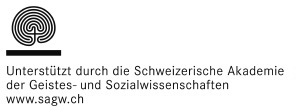How Self-Disclosure in Online Postings Affects Female Readers’ Stigmatisation Towards Mothers with a Disability
DOI:
https://doi.org/10.47368/ejhc.2021.201Keywords:
social media, disability, self-disclosure, stigmatisation, perspective takingAbstract
Self-disclosure of a health problem or a disability in online environments can be helpful to reduce stigmatisation and to empower marginalised individuals. Although stigmatisation leads to adverse health outcomes, it is still unclear which factors reduce readers’ stigmatising attitudes. This 2 × 2 × 3 × 2 online-experiment with 715 female participants examined how the depiction of self-disclosure of a mother’s disability, her coping with a stressful situation, and the child’s type of disability and sex in a fictional blog post affect female readers’ stigma-related attitudes. The role of readers’ perspective taking is also studied in this regard. A MANOVA yielded two main effects: Disclosure of the mother’s disability reduced social distance compared to the control condition (no disability). Female respondents with a high ability for perspective taking reported less stigmatising attitudes than female respondents scoring low in this regard. Both effects are also reflected in a four-way interaction with mother’s coping and child’s sex. Overall, results indicate a high potential of self-disclosures for anti-stigma communication. Implications for blogging about a disability and future health communication research are discussed.
Downloads
Published
How to Cite
Issue
Section
License
Copyright (c) 2021 Alexander Röhm, Michélle Möhring, Michelle Grengel, Matthias R. Hastall

This work is licensed under a Creative Commons Attribution 4.0 International License.
The authors agree to the following license and copyright agreement:
a. Authors retain copyright in their work.
b. Authors grant the European Journal of Health Communication the right of first publication online on the internet (on the publication platform HOPE of the Main Library of the University of Zurich).
c. The electronic contributions on the internet are distributed under the „Creative Commons Attribution 4.0 International“- License (CC BY 4.0). This license allows others to copy and redistribute the work in any medium or format, to remix, transform and build upon the material with an acknowledgement of the work's authorship and initial publication in the European Journal of Health Communication . These conditions are irrevocable. The full text of the license may be read under http://creativecommons.org/licenses/by/4.0/.
d. Authors are able to enter into separate, additional contractual arrangements for the non-exclusive distribution of their work, as long as the conditions of the CC BY 4.0 License are fulfilled and initial publication in the European Journal of Health Communication is acknowledged.
e. Authors grant the Editors commercial rights, using a publishing house, to produce hardcopy volumes of the journal for sale to libraries and individuals, as well as to integrate the manuscript, its title, and its abstract in databases, abstracting and indexing services, and other similar information services.
f. This agreement is subject to possible legal disclosure obligations.
g. This agreement is governed by Swiss law. Court of jurisdiction is Zürich.









